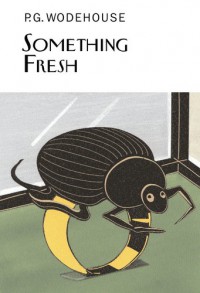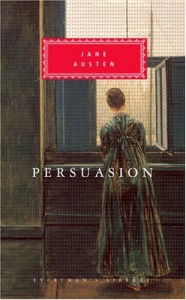
"The sunshine of a fair Spring morning fell graciously upon London town. Out in Piccadilly its heartening warmth seemed to infuse into traffic and pedestrians alike a novel jauntiness, so that 'bus-drivers jested and even the lips of chauffeurs uncurled into not unkindly smiles. Policemen whistled at their posts, clerks on their way to work, beggars approached the task of trying to persuade perfect strangers to bear the burden of their maintenance with that optimistic vim which makes all the difference. It was one of those happy mornings."
Out into this happy morning steps Ashe Marson, a young man who writes popular crime novels. A young woman laughs merrily at him as he does his daily exercises. When he retreats into his office and begins work on his next story, THE ADVENTURE OF THE WAND OF DEATH, the young woman (Joan Valentine) comes to apologize, and they proceed to have a marvelous conversation about what exactly a WAND OF DEATH might be. A few pages later, both of them are on their way to Blandings Castle to recover a precious scarab and collect the reward, and we're off along with them.
I quoted that whole paragraph at the beginning because when discussing Wodehouse, I always come back to his effervescent, inimitable language. It's impossible to describe; one can only quote. I could equally well have chosen many other passages, for this particular novel is full of wonderful ones. I don't laugh out loud all that much while I'm reading, usually; reading this I laughed so many times that my husband finally inquired what I was reading. All I had to say was "Wodehouse."
Besides the language, this book has especially good characters and relationships. Joan and Ashe continue to have excellent banter, but they also have some wonderful interplay in which Joan tells Ashe in no uncertain terms that she isn't to be treated like fine china just because she's a woman. Romantic relationships in Wodehouse often feel a bit rote -- they're not really his forte -- but this one is convincingly real.
There is of course also the absent-minded Lord Emsworth himself, and though this is his earliest appearance and he's bereft of many of his usual supporting characters (notably his brother Sir Galahad, his sister Lady Constance, and his prize-winning pig, the Empress of Blandings), he's still his usual charmingly bumbling self. Happily for Lord Emsworth, he does already have the services of magisterial butler Beach (who has a hilarious interlude with Ashe, describing his Ingrown Toenail, Swollen Joints, and Lining of his Stomach) and the Efficient Baxter, secretary extraordinaire.
This may be early Wodehouse, but it's something fresh, funny, and first-class.
 1
1

When I picked up Sunshine for the first time and realized that Robin McKinley had written a vampire novel, I was almost horrified: it seemed a far cry from Damar and retold fairy tales, and vampire novels are certainly not usually my thing. But McKinley is easily one of my top ten favorite writers, so I sat down with it one night and got so sucked into it (pardon the pun) that I stayed up most of the night finishing it (which is a bigger deal than it used to be, with a toddler who gets up when he feels like it rather than when I do). On subsequent rereads, I've managed to avoid staying up all night, but it's been a real test of my willpower.
Sunshine is set in an alternate universe, where there are vampires, demons, and weres as well as humans, those who survived the Voodoo Wars but are now threatened by the increase in the vampire population. Rae Seddon, a baker nicknamed "Sunshine" for her affinity for sunlight, has an unusual interest in the Others, but no real contact with them...until the night she's kidnapped by a group of vampires. Her fellow prisoner is also a vampire, and their joint captivity creates an uneasy alliance. Even after their escape, Sunshine and Con are still linked, and Sunshine (another of McKinley's typically strong, practical heroines) discovers more about her world, her past, and her own powers as she and Con work together to defeat the vampire who captured them.
McKinley excels at creating richly detailed worlds, and she's done that again with Sunshine. The world is like ours in many respects (Sunshine describes something at one point as "half Quasimodo, half Borg"), but chillingly different in others -- in one memorable passage, Sunshine wonders about whether phoenixes exist: "I think the phoenix has at least a fifty-fifty chance of being true, because it's nasty. What this world doesn't have is the three-wishes, go-to-the-ball-and-meet-your-prince, happily-ever-after kind of magic. We have all the mangling and malevolent kinds. Who invented this system?" Con himself is Other: not just a human with long teeth, he is inhuman, which makes Sunshine's unwilling attraction to him particularly intriguing (and yet another of McKinley's variations on the "Beauty and the Beast" theme, which she makes even more apparent by having Sunshine retell the fairy tale to Con during their imprisonment).
Altogether, Sunshine is an unusual outing for McKinley in its subject matter and world, but her wonderful writing, worldbuilding, and characterization are fully evident and as compelling as ever. Oh, and you might want to have a couple of good cinnamon rolls lying around, because believe me, you'll be hungry for them by the time you're done with the book (I wish McKinley had included Sunshine's recipe for those).
 2
2

This would be four stars, except that I didn't think the editing and organization were very good. Having the letters grouped by correspondent instead of chronologically didn't allow any flow through Fitzgerald's life, and I felt that there needed to be many more footnotes explaining references to people and events which weren't fully detailed in the letters themselves.

Pride and Prejudice has long been my favorite Austen, but after several rereadings, I think that Persuasion may have overtaken it at the top of the list (or at least equaled it). The heroine, Anne Elliot, is quiet and unassuming and the story of her romance with Captain Wentworth could hardly be more different from that between Elizabeth and Darcy, yet it is perhaps more deeply felt and written.
The story begins eight years after Anne, on the advice of her friend Lady Russell, broke off her engagement to Captain Wentworth; now, at twenty-seven, Anne's "bloom [has:] vanished early" and she is nearly an old maid. When Anne's father, Sir Walter Elliot, is forced to rent out their family estate, Anne goes to live first with her married sister Mary and then with her father and unmarried sister at Bath, and Captain Wentworth returns to the scene. The resulting renewal of their romance unfolds gently and tenderly, culminating in a deservedly famous scene in which Anne, debating with Captain Harville within Wentworth's earshot, movingly defends the emotional capacity of women: "All the privilege I claim for my own sex (it is not a very enviable one, you need not covet it) is that of loving longest, when existence or when hope is gone."
I imagine that when asked which of Austen's heroines is their favorite, far more people would choose Elizabeth Bennet or Emma Woodhouse than Anne Elliot, yet I find Anne particularly sympathetic - a woman of deep sympathies, common sense, good judgment, and self-awareness. Her journey from resignation to joy is beautifully and sympathetically delineated by Austen, without the loss of her usual sharp wit.
 2
2



